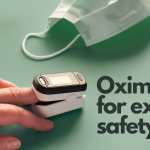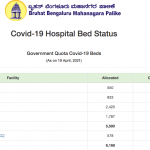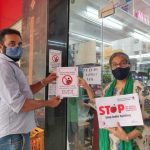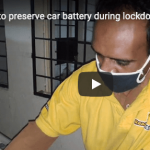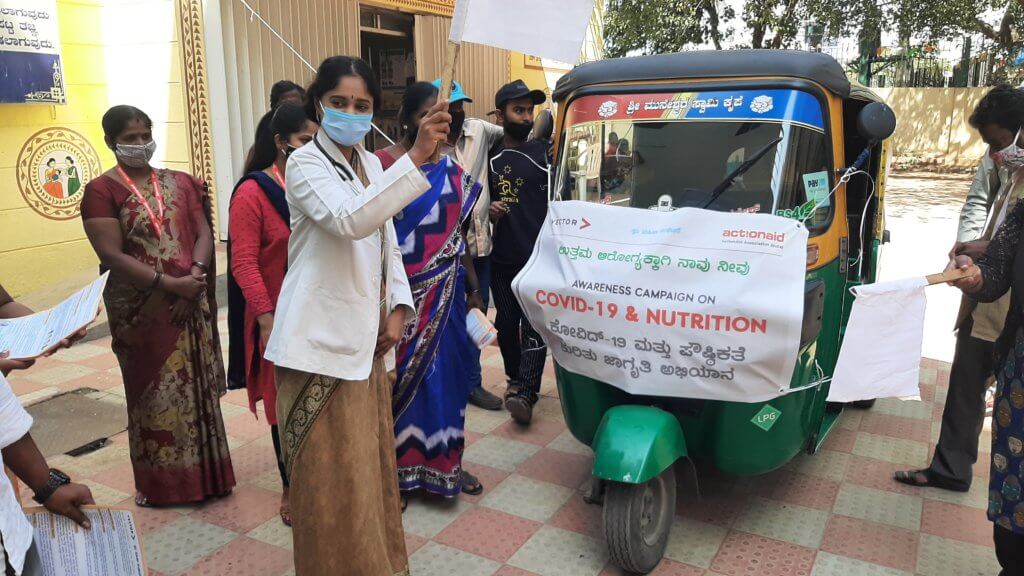
By Chandrima Mazumdar
Better awareness and the right nutrition is the best way to prevent the second wave of COVID-19, according to ActionAid. The NGO launched a campaign to emphasise these points on Tuesday. The COVID-19 camp and nutrition distribution to adolescents was done in association with Slum Mahila Sanghatane and the CSR support of Vector Infomatik.
“We have had various training sessions with doctors, and they have told us how patients suffering from different comorbidities will be worse affected in case of a second wave of COVID,” says Madeeha Kulsum, who is in-charge of the documentation for the project. On that basis, her organisation has created pamphlets to disseminate the information.
A nutritional health supplement was also provided to 100 children of the nearby slums. The food items were a mix of pulses and various cereals required for a balanced diet in growing children. “We work actively in these areas and we know how the informal working sector has been affected due to the pandemic, especially the children, since even the Mid-Day meals have been suspended for the time being,” says Raghavendra P, program manager, ActionAid.
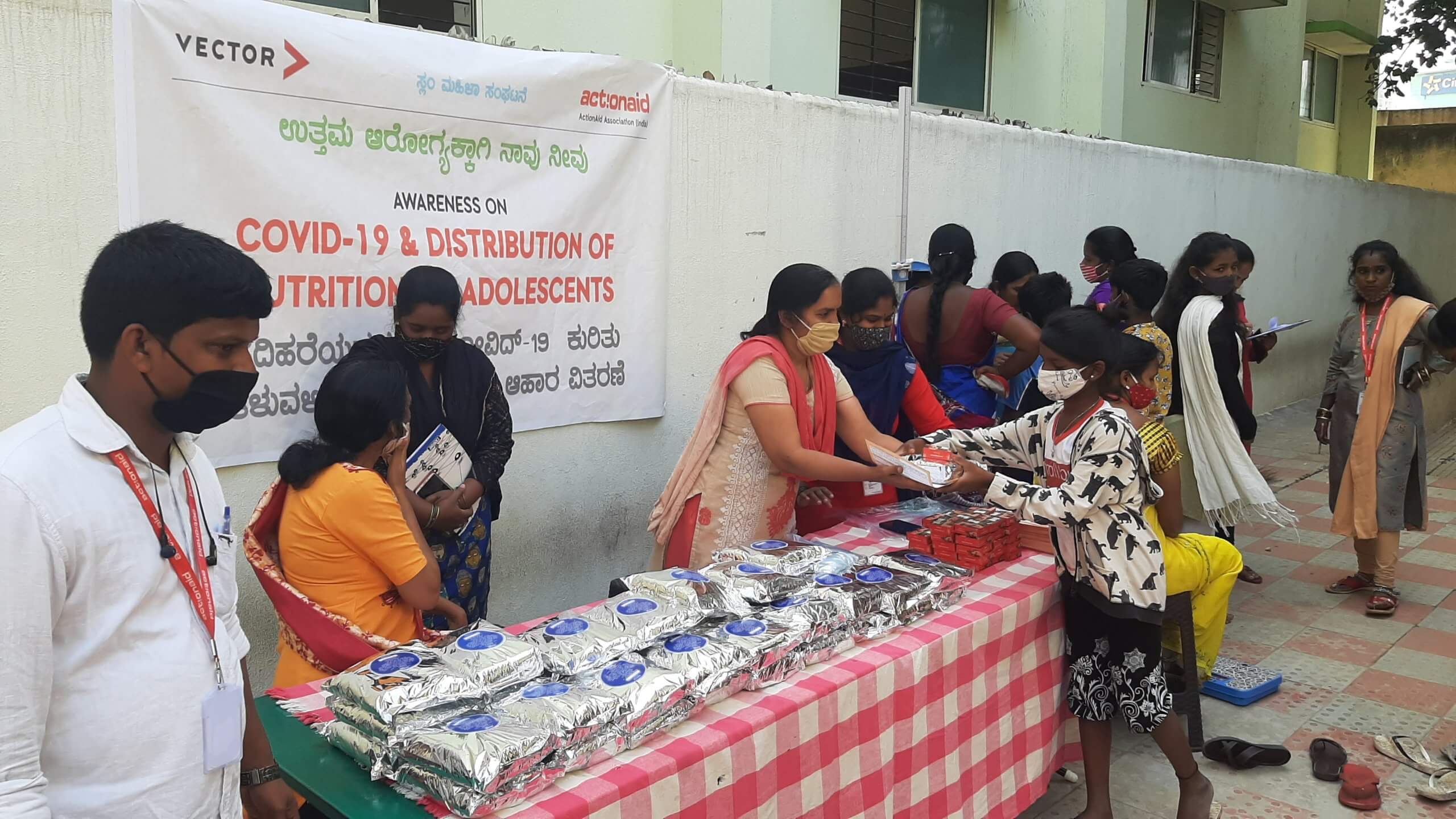
Work during the lockdown
Many businesses and factories have shut down due to the pandemic, effectively rendering more than 80% of the people unemployed in the informal sector, according to a recent ActionAid India survey. The nutrition factor of the children of these households have also taken a hit as their parents lost their livelihoods. ActionAid’s Bengaluru Regional office has provided 6,120 families with dry ration, 1,06,282 persons with cooked meals and 7,379 with sanitation kits in nine taluks of 10 districts covering 13,951 households. The NGO has facilitated a strong volunteer base of 150 volunteers in five wards of the city: Cheluvadipalya (ward 138), KR Market (139), Cottonpete (120), Padaranyapura (135), and JJR Nagar (136). Their community meetings clarified doubts about the COVID-19, supported the government primary health centres (PHC) in conducting 15,000 tests, and also helped with home quarantine, COVID care centres, and hospitalisation of COVID-19 patients for 300 individuals.
The awareness campaign launched on December 22 aims to support the PHCs and individuals with medicines. Over the next 15 days, around 75,000 people in the five wards mentioned above would be contacted. “We are hoping to provide nutritional supplements to more than 300 kids from the slums,” says Kulsum.
Helping the marginalised
ActionAid has worked with the most marginalised communities in India namely Jenkuruba, Bettakuruba, Soliga, Yarava Medha, Malikudia, Hakkipikki, Gowdlu, Hasalaru and Gonda communities since 1972. The NGO’s work for social and ecological justice covers 24 states and two union territories. At this point, Action Aid has seven long-term initiatives across the state of Karnataka: Asare, which works for the development of rural women and children; Bridge Network, Janasahayog and Karnataka Adivasigala Nyayakagi Andolana work to empower the communities to access their rights over land, water, forests and others; Jagruti and Sustainable Women’s Action For Rights and Justice for women in marginalised communities; and Akruthi which works for rights assertion of women and children living with HIV. Since lockdown, ActionAid has been working for the people living in slums.

